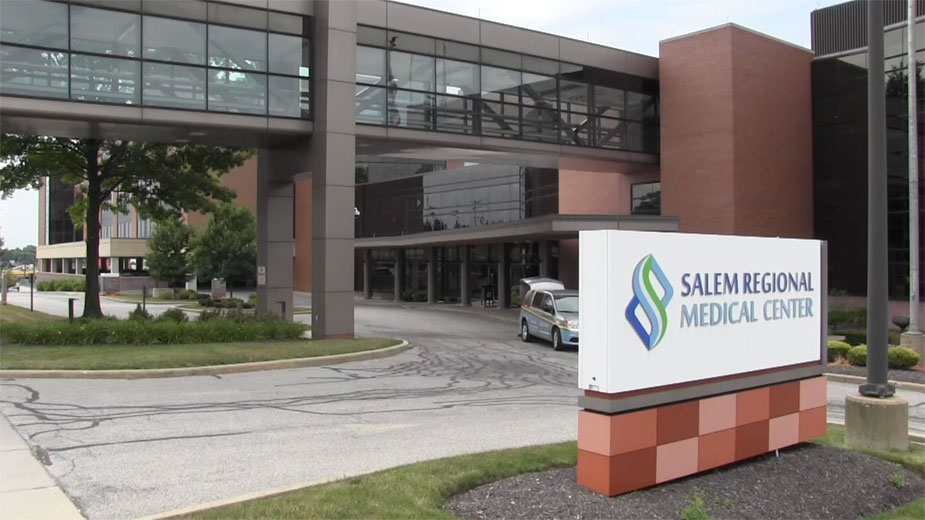Drug Treatment Providers Fear GOP Health Care Bill
YOUNGSTOWN, Ohio – Professionals who deal with the affects of substance abuse fear the draft health-care bill being considered now by the U.S. Senate will worsen the opiate crisis in Ohio.
About a dozen representatives of treatment clinics, hospitals and law enforcement joined U.S. Sen. Sherrod Brown for a roundtable Monday morning at the offices of the Mahoning County Mental Health and Recovery Board.
The discussion took place just hours before the Congressional Budget Office released its scoring of the draft bill. According to the CBO, the proposal would increase the number of people without health insurance by 22 million by 2026. By next year, 15 million more would be uninsured than under current law.
It would also decrease federal deficits by $321 billion over a decade, the CBO projection showed.
The bill, which eliminates the Medicaid expansion under the Affordable Care Act on top of additional cuts to Medicaid, “takes away the single most important tool to fight opioid addiction,” Brown, D-Ohio, said. More than 220,000 Ohioans with addiction or mental health disorders now have coverage under the ACA, including more than 151,000 through the Medicaid expansion.
In Ohio, funding for treatment through the Medicaid expansion has allowed local levy funds to provide supportive services to work in conjunction with treatment, such as recovery housing, prevention programs and education, said Duane Piccirilli, executive director of the Mahoning County Mental Health and Recovery Board.
If the Medicaid expansion is rolled back, those local levy dollars will have to go toward treatment, and those funds wont be adequate, he said. “It’s really going to have a bad impact for Ohio,” he remarked.
If individuals weren’t in treatment now, many more would be dying, Joseph Caruso, president and CEO of Compass Family & Community Services, said.
“You can’t have health communities if you don’t have healthy people,” Caruso said.
At the Neil Kennedy Recovery Center in Youngstown, about 90% of patients are being treated under Medicaid. Reported Pamela Ramsey, director of outpatient programming. Patients sometimes take six or seven tries before treatment for opiate addiction succeeds.
“There actually are several factors and several reasons for that,” Ramsey said. Among those are that other drugs might be involved that lead to them taking opiates. “There’s very much a physical piece to this and what happens to our brains, to our bodies on opiates and what that does, it makes it so very difficult physically to just come into treatment and be fine,” she added.
Also, many times patients are reintroduced to an environment where other members of the family are addicted, and drugs are readily available, she said.
Addiction doesn’t discriminate, afflicting everyone from housewives to CEOs, said Ruth Bowdish, counselor for On Demand Drug Testing and Work Solutions, Austintown. When people are unable to work or to improve their education or job skills because of their addiction, problems extend far beyond health services, she said.
“It is important, more so than ever, that we have an all-inclusive type of treatment. We can’t just have one or two aspects of it. We have to realize that when we come at an opiate addiction that it’s multifaceted,” said Ruth Bowdish, counselor for On Demand Drug Testing and Work Solutions, Austintown. “Although we may be able to limit the supply, if we’re not touching the demand we’re not really helping the problem as much as we need to be.”
“We can’t arrest our way out of it,’” added Austintown Police Chief Bob Gavalier.
“We’re finally to a place where our community has come together. We’re at the table working together. The way that we can fund this realistically is because of the Medicaid and the expansion,” said Katherine Komara, director of operations for Mercy Health. “When that’s eliminated, we’re not going to want to intentionally fall back, but resources are what they are and we’re not going to be able to sustain what we’re doing.”
Senate Minority Leader Mitch McConnell, a Republican, has said he plans to bring the proposal up for a vote before the Senate leaves town later this week for the July 4 recess. To induce skeptical members of his own party to support the bill, Brown said he plans to add a provision for grant funding specifically to fight opiate addiction, though the Ohio Democrat said the funding would be inadequate to meet the state’s needs.
“You need a full regimen, a wraparound kind of health insurance,” he said. “You don’t eliminate Medicaid expansion and replace it with a few dollars in federal grants that won’t do the trick.”
Pictured: U.S. Sen. Sherrod Brown conducts a discussion Monday with local health providers.
Copyright 2024 The Business Journal, Youngstown, Ohio.


